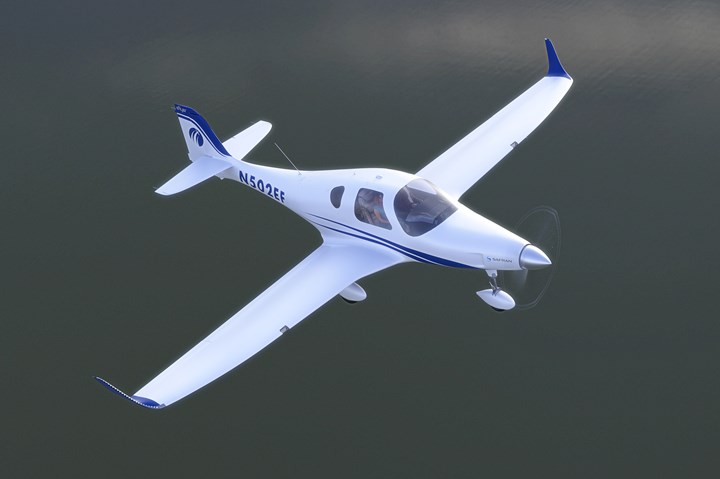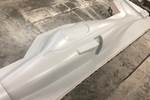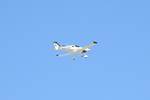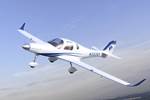Bye Aerospace's eFlyer 2 achieves FAA acceptance for Functional Hazard Analysis
The company says this milestone substantiates the design of its electric general aviation aircraft.

Bye Aerospace (Denver, Colo., U.S.) has announced that the Federal Aviation Administration (FAA) has accepted the Functional Hazard Analysis for the company’s electric eFlyer 2 aircraft. This milestone is a general aviation first under Amendment 64 of FAA Part 23, Bye Aerospace says.
“This FAA milestone substantiates our eFlyer design, providing unwavering support for our market and business case. The result is a clean, capable, electric aircraft with a remarkable 80% reduction in operating costs as compared to conventional aircraft. Bye Aerospace and the eFlyer 2 are poised to revolutionize aviation pilot training economics,” says Rod Zastrow, president of Bye Aerospace.
According to the company, the FAA certification basis for the eFlyer 2 (Project No. TC09549CH-A) was established earlier, confirming its eligibility for a type certificate. The FAA has affirmed that the type design complies with the U.S. type certification basis and that the aircraft is safe for the requested certification category.
Zastrow adds, “Our sustainable aircraft technology represents a paradigm shift in the aviation industry. Our groundbreaking eFlyer design offers an unprecedented opportunity for aerospace, and ESG (Environmental, Social, and Governance) institutional investors to invest in a cleaner and more sustainable future for aerospace and aviation.”
Related Content
-
Welding is not bonding
Discussion of the issues in our understanding of thermoplastic composite welded structures and certification of the latest materials and welding technologies for future airframes.
-
The next-generation single-aisle: Implications for the composites industry
While the world continues to wait for new single-aisle program announcements from Airbus and Boeing, it’s clear composites will play a role in their fabrication. But in what ways, and what capacity?
-
Industrializing additive manufacturing in the defense/aerospace sector
GA-ASI demonstrates a path forward for the use of additive technologies for composite tooling, flight-qualified parts.
.jpg;width=70;height=70;mode=crop)


